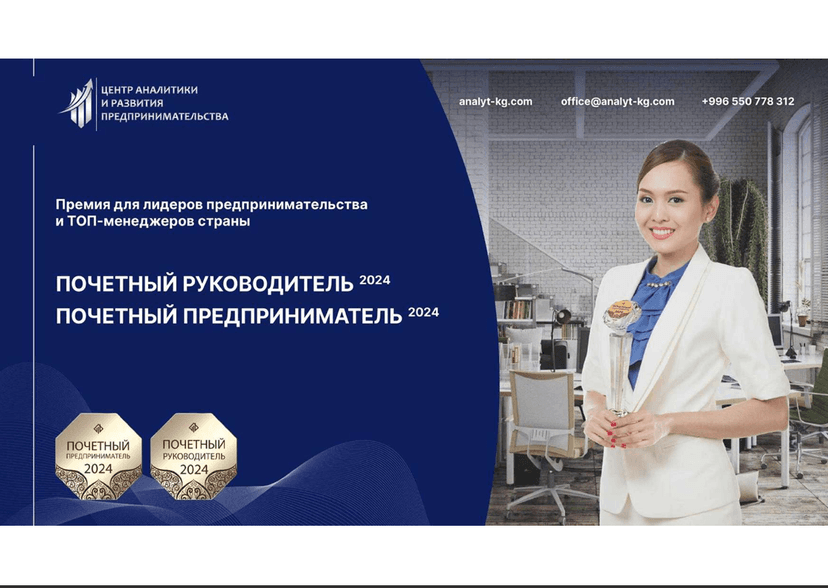23.04.2025
Fostering Civic Identity and Social Cohesion in Kyrgyzstan: A Joint UNESCO and EdNet Agency component
Over the past year, UNESCO together with EdNet Agency , in partnership with the Ministry of Culture, Information, Sports and Youth Policy of the Kyrgyz Republic and Center for civic education under the Central election Committee, implemented one of the components of the project of UNDP, aimed at strengthening civic competencies, promoting peacebuilding, and empowering communities across the country. The initiative culminated in the development of a national Toolkit and Policy Brief that now stand as strategic resources to foster social cohesion, civic responsibility, and inclusive governance in Kyrgyzstan.
This pioneering project focused on enabling both top-down policy integration and grassroots-level civic engagement, setting the stage for long-term development of civil society in partnership with the government, intercultural dialogue, and sustainable peace, that helps to achieve tasks and goals of “Kyrgyz Jarany”.
Phase I:
Foundations of Change – Workshops and Strategic Framework
The project’s first phase (mid to October 2024) focused on laying the groundwork for systemic change. A comprehensive Policy Brief titled “Review of Documents and Regulations of the Kyrgyz Republic on the Development of Civic Competencies and Toolkit” was developed. This brief synthesized international practices with local regulations and provided clear policy recommendations tailored to the Kyrgyz context.
Seven regional workshops were conducted in Alamedin, Sokuluk, Jalal-Abad, Osh, Uzgen, Batken, and Razzakov under the banner “Civic Identity through the Formation of Civic Competencies.” These workshops served as a dialogue platform between civil society, local government, media, and public advisory councils (PACs), with 112 participants, including a significant representation of women (50.8%) and youth. The interactive format included pre- and post-surveys, discussions on international models, and local applications of civic education, reflecting high engagement and growing understanding of civic identity as a unifying value.
According to participant feedback, 91% of the participants of workshops acknowledged the importance of civic education by the end of the training. These outcomes highlighted the need for tools and structures to translate civic values into everyday governance and education.Phase II: Action and Impact – Toolkit Development and Piloting
Building on Phase I, the second phase lasted till February 2025 focused on transforming knowledge into practical tools. At the heart of this effort was the creation of a comprehensive Toolkit on Developing Civic Competencies, Civic Engagement, and Peacebuilding. Authored by renowned Kyrgyz experts Natalia Nikitenko and Medet Tyulegenov, the Toolkit was structured in three parts:
- Conceptual foundations of civic identity and social cohesion
- Practical tools and case studies for local implementation
- A handbook on electoral rights, tailored for community engagement and education
The Toolkit was piloted in Alamedin and Batken districts between December 2024 and January 2025. In Alamedin, 44 lessons on civic education were conducted across 21 schools, complemented by a social cohesion survey that reached over 1,500 community members. In Batken, where structural changes in PACs presented challenges, the project team adapted by organizing focused online consultations to gather feedback and support.
Despite contextual differences, the piloting phase confirmed the Toolkit’s versatility, accessibility, and capacity to resonate with diverse community groups. The document was made available in both Russian and Kyrgyz to ensure wide outreach.
Policy Engagement: Civic Education as a Pillar of National Identity
Informed by the pilot and grassroots engagement, a final Policy Brief was produced in early 2025. This document provides strategic guidance for integrating civic education into formal schooling and local governance, while aligning with broader initiatives such as “Kyrgyz Zharany” (Civic Identity of the Kyrgyz Citizen).
A high-level Roundtable on Peacebuilding and Civil Society Engagement was held in February 2025 in Bishkek. Attended by over 60 participants, including representatives from the Ministry, PACs, UNESCO, UNDP, and other civic actors, the roundtable served as a platform to present the Toolkit and Policy Brief and discuss next steps. Key recommendations included:
- Official adoption of the Toolkit at the national level
- Integration into educational and civic training programs
- Development of a National Action Plan against Hate Speech
- Strengthening the institutional role of PACs in peacebuilding and policy monitoring
UNESCO Project Officer Aida Bektasheva emphasized, “This initiative aligns local realities with global values. It helps ensure civic education in Kyrgyzstan is inclusive, effective, and sustainable.”
Lasting Impact and Sustainable Civic Transformation
The project has already achieved significant catalytic effects, setting the stage for continued reform:
- Institutional Ownership: The Toolkit was officially transferred to the Ministry of Culture, Information, Sports and Youth Policy for nationwide dissemination across PACs.
- Sustainability Mechanisms: Ongoing online consultations, support materials, and training plans ensure long-term usability.
- Gender and Youth Empowerment: More than half of all participants were women, and the workshops recorded youth engagement levels as high as 70% in Chui oblast, showcasing inclusive participation.
The Toolkit is now seen not only as an educational guide but as a practical framework for shaping citizenship in Kyrgyzstan—highlighting rights, responsibilities, and respectful dialogue across ethnic, cultural, and generational lines.
“This project allowed us to bridge the gap between policy and practice in civic education. The toolkit developed is a game-changer for us in providing consistent, localized resources to foster civic responsibility,” said Onolkan Umankulova, President of EdNet.
Looking Ahead
With its successful conclusion, this UNESCO and EdNet Agency component of the project leaves behind more than reports and tools—it leaves behind a movement. A movement towards a more inclusive, informed, and civically responsible Kyrgyz Republic. One where local leaders, educators, civil society, and citizens are empowered to engage meaningfully to cooperate with the government, bringing-up the identity of a citizen of Kyrgyzstan, and uphold values that bind diverse communities together. As Kyrgyzstan continues on its path toward greater social cohesion and inclusive governance, this initiative stands as a model for collaborative peacebuilding and civic education across the country.



